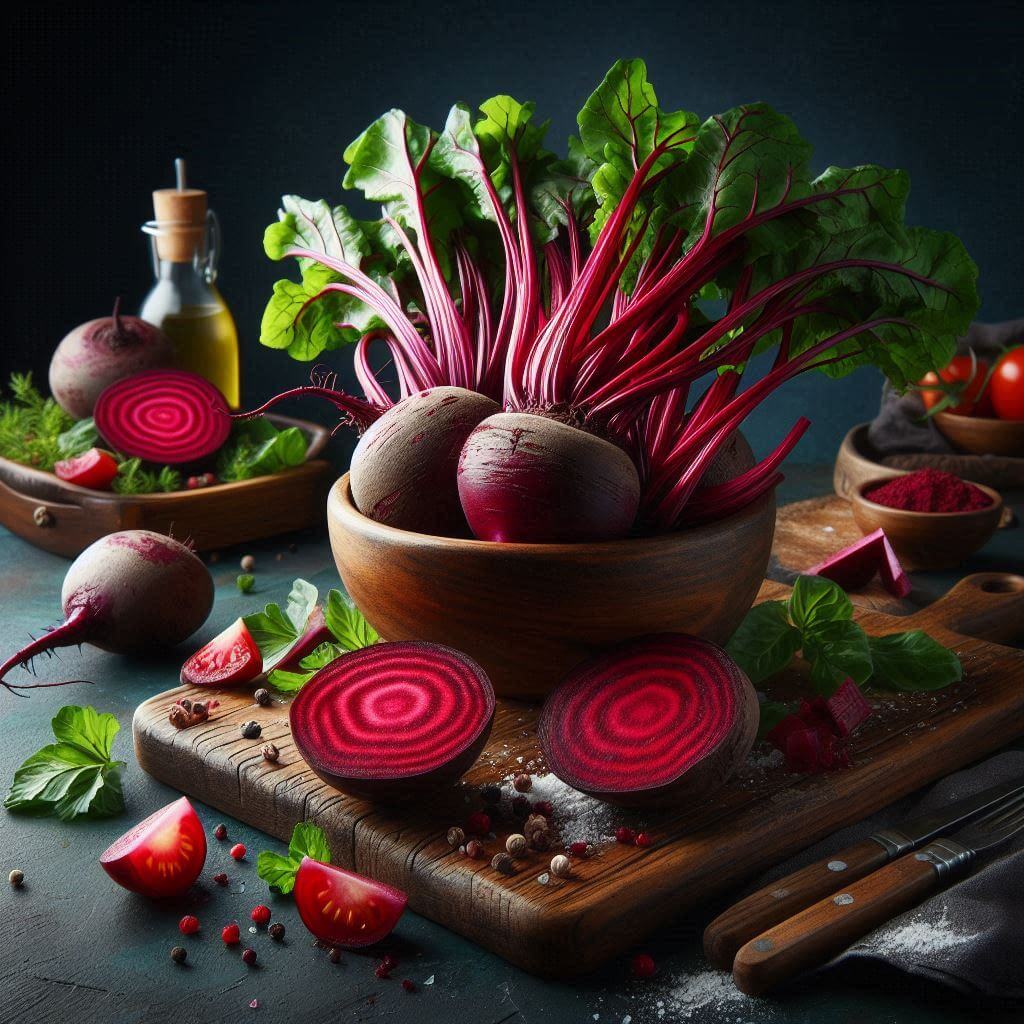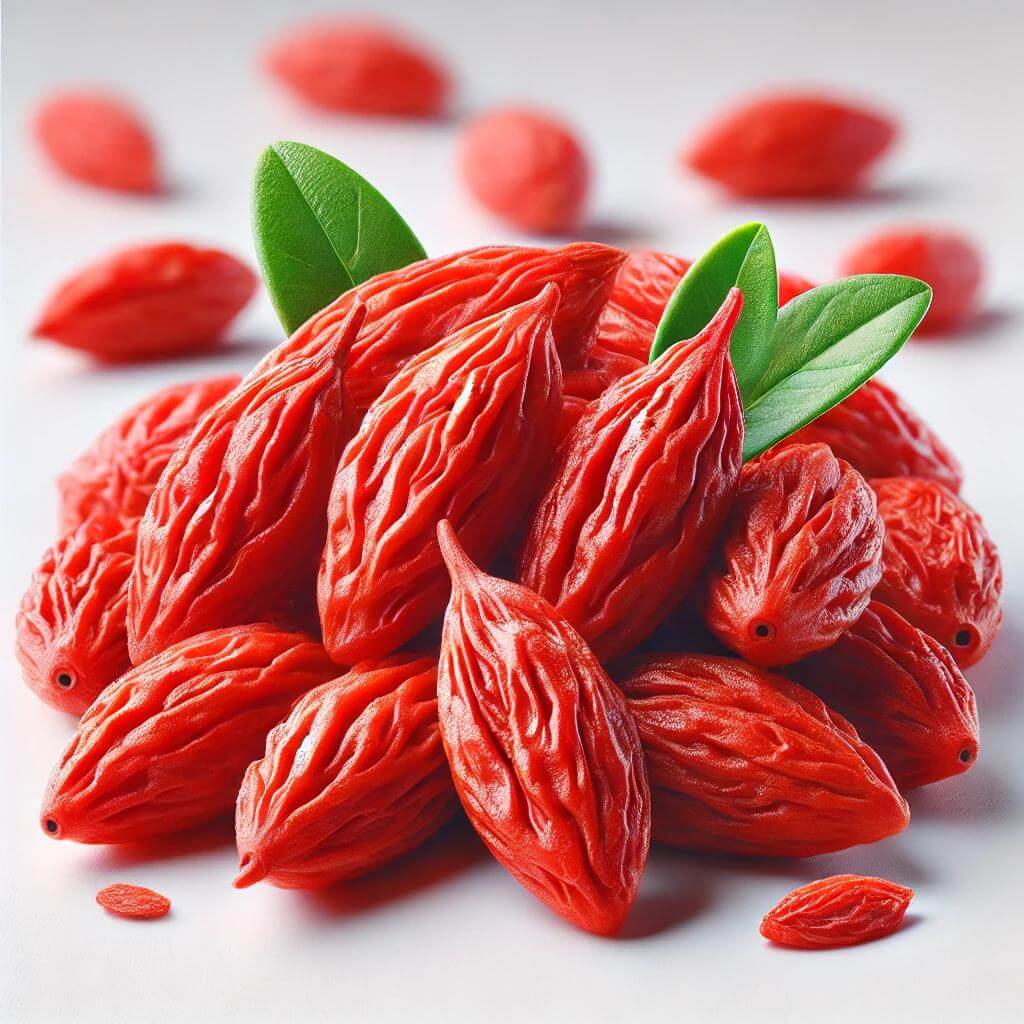The Beetroot: Nature’s Superfood Powerhouse
Beetroot, commonly known as beets, is a vibrant root vegetable that has been celebrated for centuries for its rich nutritional profile and distinctive earthy flavor. Whether roasted, juiced, or eaten raw, beets are a versatile and nutrient-dense food that has earned its place among the ranks of superfoods. This deep-red vegetable is packed with essential vitamins, minerals, and plant compounds that offer numerous health benefits, making it a must-have in a healthy diet.
Health Benefits of Beets
1. Rich in Nutrients and Low in Calories
Beets are a nutrient powerhouse, providing an abundance of vitamins and minerals in a low-calorie package. They are particularly high in:
- Folate (Vitamin B9): Essential for cell growth and function, folate is crucial for preventing neural tube defects during pregnancy and supporting heart health.
- Manganese: This mineral is vital for bone health, metabolism, and the body’s antioxidant defenses.
- Potassium: Important for heart function and muscle contractions, potassium helps regulate blood pressure by countering the effects of sodium.
- Vitamin C: A powerful antioxidant that boosts the immune system, supports skin health, and aids in the absorption of iron.
Beets are also a good source of fiber, which aids in digestion and supports a healthy gut.
2. Supports Heart Health
One of the most celebrated benefits of beets is their ability to improve cardiovascular health. Beets contain high levels of nitrates, which the body converts into nitric oxide. Nitric oxide is a molecule that helps to relax and dilate blood vessels, promoting better blood flow and reducing blood pressure. Regular consumption of beets has been shown to:
- Lower blood pressure, reducing the risk of heart attacks and strokes.
- Improve circulation, enhancing oxygen delivery to tissues.
- Reduce inflammation and oxidative stress, which are major contributors to heart disease.
3. Boosts Athletic Performance
Beets are popular among athletes due to their ability to enhance physical performance. The nitrates in beets improve the efficiency of mitochondria, the powerhouses of cells, thereby increasing energy production. Studies have shown that drinking beet juice before exercise can:
- Improve endurance and reduce the oxygen cost of exercise.
- Enhance stamina, allowing athletes to exercise longer without fatigue.
- Increase time to exhaustion during high-intensity activities, such as running or cycling.
4. Supports Brain Health
As we age, cognitive function can decline, but beets may help to maintain brain health. The nitrates in beets increase blood flow to the brain, particularly to the frontal lobe, which is responsible for cognitive processes such as memory and decision-making. This increased blood flow can:
- Enhance cognitive function and mental clarity.
- Reduce the risk of dementia and age-related cognitive decline.
- Improve mood and reduce symptoms of depression, thanks to the production of nitric oxide, which has antidepressant effects.
5. Fights Inflammation
Beets are rich in betalains, which are pigments that give beets their deep red color. Betalains have powerful anti-inflammatory properties that can help to:
- Reduce chronic inflammation, which is linked to conditions such as heart disease, cancer, and arthritis.
- Alleviate pain and discomfort associated with inflammatory conditions.
- Support liver detoxification, as betalains help to neutralize toxins and support their elimination from the body.
6. Promotes Digestive Health
The high fiber content in beets supports a healthy digestive system by:
- Promoting regular bowel movements and preventing constipation.
- Feeding beneficial gut bacteria, which are essential for a healthy microbiome.
- Reducing the risk of digestive disorders, such as diverticulitis and inflammatory bowel disease.
7. Supports Detoxification
Beets are often included in detox diets due to their ability to support the body’s natural detoxification processes. The betalains in beets assist in the detoxification of the liver by:
- Enhancing the body’s ability to remove toxins and waste.
- Supporting the regeneration of liver cells and reducing liver inflammation.
- Improving the function of bile, which aids in digestion and fat absorption.
How to Incorporate Beets into Your Daily Diet
Beets are incredibly versatile and can be enjoyed in many different ways. Here are some ideas for incorporating beets into your daily diet:
- Roasted Beets:
- Slice beets into wedges, drizzle with olive oil, sprinkle with salt and pepper, and roast in the oven until tender. Roasted beets make a great side dish or salad topping.
- Beet Juice:
- Fresh beet juice is a nutrient-packed drink that can be enjoyed on its own or combined with other fruits and vegetables like carrots, apples, and ginger.
- Beet Salads:
- Add grated or thinly sliced raw beets to salads for a crunchy texture and a burst of color. Beets pair well with arugula, goat cheese, walnuts, and citrus fruits.
- Beet Soup:
- Traditional borscht, a beet-based soup, is a delicious way to enjoy beets. Serve it hot in the winter or cold in the summer for a refreshing meal.
- Beet Smoothies:
- Add cooked or raw beets to your morning smoothie for a nutrient boost. Beets blend well with berries, bananas, and leafy greens.
- Beet Chips:
- Thinly slice beets, toss with olive oil and your favorite spices, and bake until crispy for a healthy snack alternative to potato chips.
- Pickled Beets:
- Preserve beets in vinegar, sugar, and spices for a tangy and sweet addition to sandwiches, salads, or as a snack.
Disadvantages of Beets
While beets offer numerous health benefits, there are a few potential drawbacks to consider:
- High Sugar Content:
- Beets are relatively high in natural sugars compared to other vegetables. While this can provide a quick energy boost, it may be a concern for individuals with diabetes or those monitoring their sugar intake.
- Oxalate Content:
- Beets contain oxalates, which can contribute to the formation of kidney stones in susceptible individuals. If you are prone to kidney stones, it may be advisable to moderate your beet consumption.
- Beeturia:
- Consuming beets can cause beeturia, a condition where your urine and stools turn red or pink. While harmless, this can be alarming if you’re not expecting it.
- Potential Allergies:
- Although rare, some people may have an allergic reaction to beets, which can cause symptoms such as hives, itching, and swelling.
Nutritional Values of Beets
Below is a table summarizing the nutritional content of 100 grams of raw beetroot:
| Nutrient | Amount per 100g | % Daily Value* |
|---|---|---|
| Calories | 43 kcal | 2% |
| Carbohydrates | 9.6 g | 3% |
| Sugars | 6.8 g | – |
| Fiber | 2.8 g | 11% |
| Protein | 1.6 g | 3% |
| Fat | 0.2 g | 0% |
| Folate (Vitamin B9) | 109 µg | 27% |
| Manganese | 0.3 mg | 16% |
| Potassium | 325 mg | 9% |
| Vitamin C | 4.9 mg | 8% |
| Iron | 0.8 mg | 4% |
| Magnesium | 23 mg | 6% |
| Phosphorus | 40 mg | 6% |
| Calcium | 16 mg | 2% |
*Percent Daily Values are based on a 2,000-calorie diet.
Conclusion
Beets are a nutrient-dense superfood with a wide array of health benefits, from supporting heart and brain health to enhancing athletic performance and aiding in detoxification. Their versatility in the kitchen makes them easy to incorporate into any diet, whether through juicing, roasting, or adding to salads and soups. While there are a few considerations to keep in mind, such as their sugar content and oxalate levels, the advantages of including beets in your diet far outweigh the disadvantages. Embrace the vibrant beetroot and enjoy the multitude of health benefits it has to offer.
*Disclaimer: The information provided in this article is for educational and informational purposes only and should not be construed as health advice. The content is solely the personal opinion of the author and is not intended to be a substitute for professional medical advice, diagnosis, or treatment. Always seek the advice of your physician or other qualified health provider with any questions you may have regarding a medical condition or before starting any new diet or treatment. Read more




Post Comment